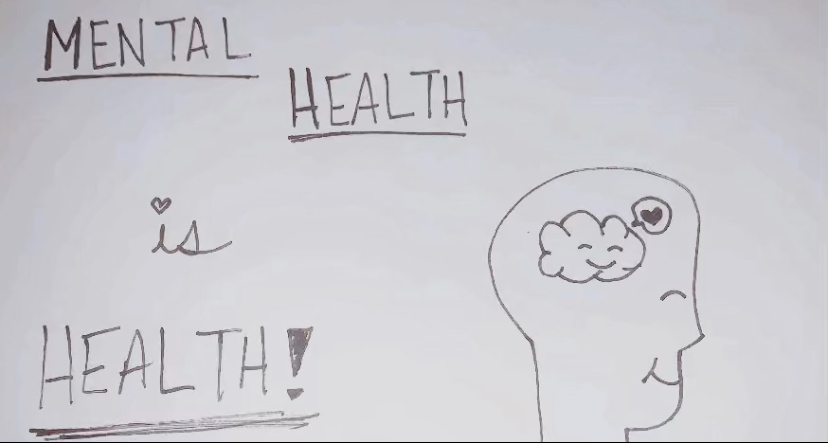By Cindy Lazo | Published February 24, 2022
It was a Thursday morning like no other; my hands felt clammy as I kept refreshing my email, impatiently waiting for the Zoom link for my first virtual counseling session.
As the clock kept ticking closer to my allotted time, the feeling of knots started to sink into the pit of my stomach as I began to recall my recent announcement to my misinformed Hispanic family that I was seeking help for my anxiety breakdowns with thoughts and feelings I cannot suppress and no longer hold in–their comments of ‘why do I need it’ and ‘therapy won’t do any difference’ kept echoing in my mind as I began to have doubts.
Even after my session, I was feeling regret and guilt for pursuing this unknown territory because of years of hearing and having been told by my family that therapy is for crazies and will likely get you labeled as mental. I had even cried once the Zoom call ended because at that moment I thought that I was bringing shame and embarrassment to my parents.
But, at the same time, I was officially through having to continue to bottle up my thoughts and emotions and looked to break this cycle and notion.

The subject of mental health in many communities of color is considered taboo and often stigmatized.
According to the Deconstructing Stigma: Changing the Attitudes About Mental Health campaign, 1 in 5 Americans will experience mental illness in their lifetime and that 75% of those with mental illness said they endured the pain of stigma.
And the Depression and Bipolar Support Alliance’s (DBSA) website stated that individuals in racial and ethnic minority groups are less likely to receive mental health care, with 48% of white adults receiving mental health services in comparison to the 31% African-Americans and Latine/Hispanics and 22% Asian Americans back in 2015.
“I think it would be very difficult to identify one sole reason for why individuals don’t seek help or access [to] therapy or don’t discuss mental health.” Dr. Stephanie Hernandez-Rivera, Assistant Director of the Office of Diversity, Equity and Inclusion, said. “But I think that the way that systems of oppression function is a significant contributor to discussing mental health and also to seeking support for it.”
Hernandez-Rivera referenced patriarchy as an example, saying that it might make it difficult for men to seek help or discuss their mental and emotional well-being.
“I also think that when we think about mental and emotional well-being in communities of color, I feel like the system of white supremacy and the ideologies around that system has made taking care of one’s mental and emotional well-being almost like a luxury,” She said. “And so as a result I feel like that becomes something that over time people of color have been socialized to not take care of their mental and emotional well-being because it’s perceived as a luxury as opposed to a basic need and a human right.”
Dr. Vidal Annan Jr., director of the Office of Counseling, Accessibility, Alcohol and Other Drug Services, believes that lack of familiarity and not knowing how counseling and therapy works could possibly be a major reason for why some feel hesitant.
“I think that any kind of condition or illness can make people feel vulnerable, can make them feel weak, can make them feel exposed–people do not like to feel that,” Annan Jr. explained. “Anything that makes them feel like they will have to be open to other people that’s also uncomfortable [for them]. Most people feel like there would be a judgment on them if they share things that have happened in their lives, or how they think or how they feel. And they do not think that counseling will be different.”
According to Mental Health America, for African American, Latine/Hispanic, Asian American and Native American communities attitudes towards mental health related to issues like conflict of values, negative perceptions, and lack of accessibility are attributed towards fewer people seeking health.
For Kean students who are on the fence about seeking help or are like me, still apprehensive on whether to continue forward with this, there is one message I’d like to share: take that first step. Set aside those fears of judgment because prioritizing your mental health is more important, especially in the long run.
Annan Jr. advises to do research and read up on what therapy is. The Counseling Center is on social media and their website provides information as well, including an anonymous screening tool (that does not require personal information) that can indicate whether counseling is or is not needed.
“Also, we [the Counseling Center] are very happy to just answer general questions,” He explains. “It does not have to be about you being in therapy, a student can always come to the Counseling Center and ask ‘how [does] therapy work?’, ‘how often do I need to come?’, ‘what do I talk about?’ just so that the student can get a good understanding of the service.”
Hernandez-Rivera says that it is okay to get support and to get help, that there is always going to be stigmas.
“There are stigmas around who we are as people and around our identities but I think part of being able to live a full life where you feel like a whole person is not allowing those stigmas and those stereotypes to jeopardize your ability to be authentic,” She said. “And even if you are not necessarily experiencing mental health challenges, it’s still good to access mental health services.”


You must be logged in to post a comment.